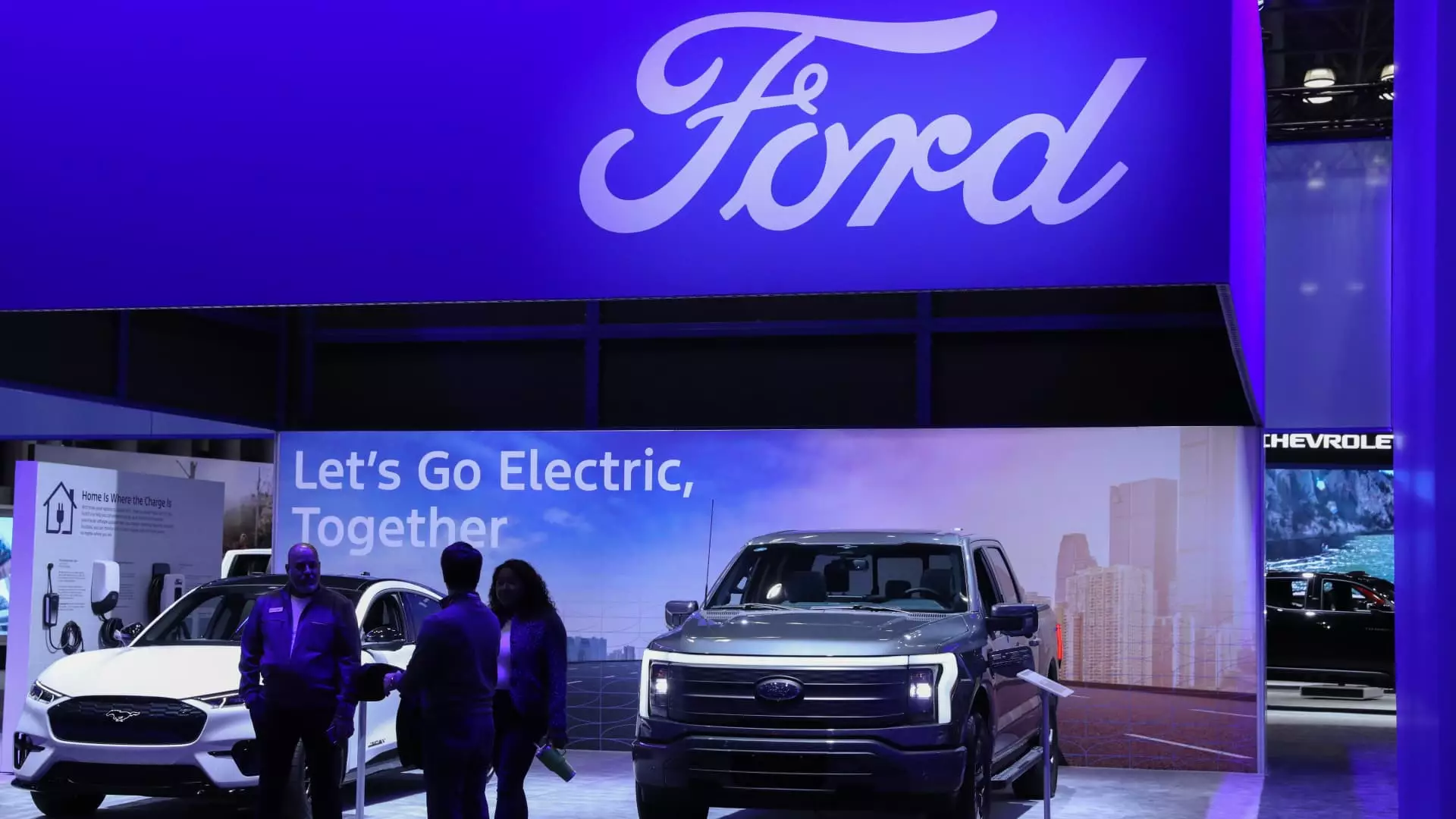Ford Motor recently announced that they are delaying production of a next-generation all-electric pickup truck at a new plant in Tennessee. The company is also canceling plans for a three-row electric SUV. Instead, Ford is shifting its focus to developing hybrid models and electric commercial vehicles. This decision comes as Ford aims to better position itself in the increasingly competitive electric vehicle market.
Ford’s CFO, John Lawler, stated that the company will prioritize the development of hybrid models and electric commercial vehicles such as a new electric commercial van in 2026, followed by two EV pickup trucks in 2027. The company has identified commercial trucks and SUVs as areas where they have a competitive advantage and plan to invest heavily in these segments.
Financial Implications
While the shift in priorities is meant to deliver a capital-efficient, profitable electric vehicle business in the long term, it will come at a cost in the short term. Ford expects to incur a special noncash charge of about $400 million for the write-down of certain product-specific manufacturing assets, including the cancellation of the three-row SUV. The changes may also result in additional expenses and cash expenditures of up to $1.5 billion.
Future Capital Expenditure
Ford’s future capital expenditure plans will now shift from spending about 40% on all-electric vehicles to spending 30%. This reallocation of resources reflects the company’s strategic decision to prioritize commercial vehicles over other EV offerings. Lawler did not provide a specific timeline for this change but emphasized the importance of adapting to market demands and trends.
Vehicle production at the new $5.6 billion Tennessee site was initially expected to begin next year. However, with the changes in Ford’s product lineup, the timeline for production has been pushed back. Ford still expects to start battery cell production at the site in 2025, signaling their commitment to advancing electric vehicle technology despite the delays in specific models.
Market Response
According to Lawler, Ford’s decision to adjust its electric vehicle lineup is a response to feedback from customers and market trends. The company aims to offer a wider range of electrification choices to meet the evolving needs of consumers. By focusing on commercial vehicles and hybrid models, Ford believes that they can better cater to the demands of the market and strengthen their position in the electric vehicle segment.
Future Outlook
Despite the changes to its product roadmap, Ford remains committed to electrification. The company plans to continue producing and updating its current lineup of all-electric vehicles, including the Ford Mustang Mach-E crossover and F-150 Lightning pickup truck. Ford will provide investors with an update on electrification, technology, profitability, and capital requirements in the first half of 2025, outlining its long-term strategy for success in the electric vehicle market.

